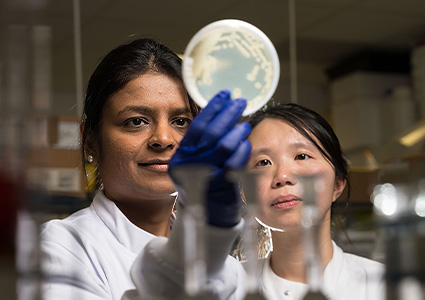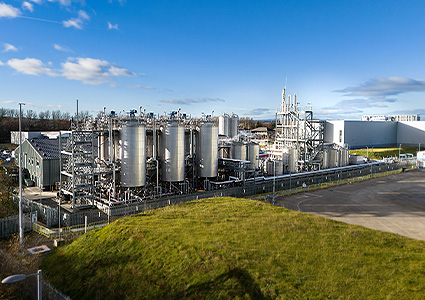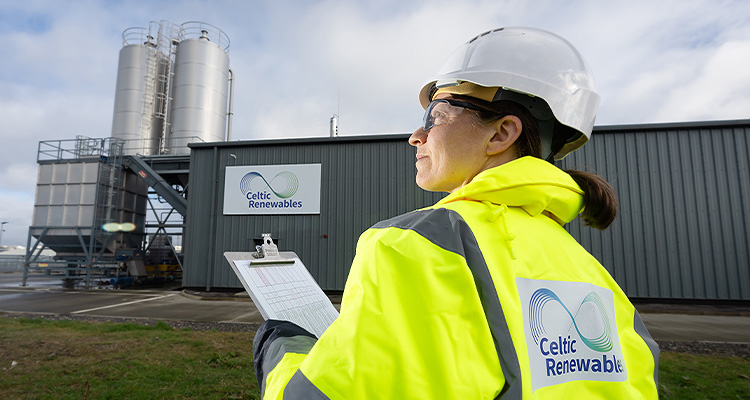Celtic Renewables: Leading the Green Chemical Revolution
For over a decade, Celtic Renewables has been leading the chemical manufacturing sector toward a greener future. Since its last feature in Manufacturing Today, the company has opened the doors to its very first production plant. From concept to design, this groundbreaking facility is ten years in the making, as Chief Executive Officer, Mark Simmers, begins: “Our plant is the first of its kind, which means we faced a number of challenges along the way. Nevertheless, we persevered, and in mid-2022 were able to complete the project. Commissioning went on into early 2023, and since then we’ve been fully operational. It’s a huge accomplishment, and an incredibly exciting time for the company.
 “Today, the Grangemouth plant can produce green chemicals on an industrial scale. Our primary output chemicals are bio-butanol and bio-acetone — we’ve been successfully shipping the chemicals out to customers, and as a result we’re now officially a revenue generating business.
“Today, the Grangemouth plant can produce green chemicals on an industrial scale. Our primary output chemicals are bio-butanol and bio-acetone — we’ve been successfully shipping the chemicals out to customers, and as a result we’re now officially a revenue generating business.
“Scaling up a biotechnology business requires a lot of stakeholder engagement and support. We’ve given a lot of our energy over the past few years to developing partner relationships. Up until now, we’ve been selling an idea. There’s a real sense of accomplishment in making that dream a reality and demonstrating the power of our initial concept. Now that we have the facility up and running, we have the momentum we need to jump confidently into our future plans.”
The concept behind Celtic Renewables has undergone several evolutions over the last decade, as Mark discusses: “At the beginning of our journey, we wanted to market bio-butanol to the road fuel market. However, as we continued our research, and began working more closely with customers, we realized that the materials we were producing had even greater value. We decided to re-brand and began marketing to the chemicals market instead.
“That involved creating a new logo, and a slightly different brand identity. We wanted our voice to reflect the sustainable values that underlie our work, so we came up with the tagline: ‘Leading the green chemical revolution.’
“In order to produce everyday consumer products, the chemical industry relies heavily on fossil fuels. Over-reliance on these kinds of resources isn’t sustainable, and so we wanted to emphasize to customers that we can offer something different. A long-term solution that’s kinder to the planet.
“Creating something new, and building it from the ground up, can be a very trying experience. It takes longer than you expect, and there are a lot of hurdles to clear, but despite all those challenging moments, we’ve been able to come into the market at exactly the right time. It’s become clear that the demand for renewable chemical resources is incredibly strong. We’re pioneering a technology that can help the world’s largest companies reduce their carbon footprint by up to 65 percent. Since we brought the plant online, we’ve had a massive response from big chemical companies, and even some major pharmaceutical providers. It really feels like the beginning of a new chapter: the green chemical age.” 
As an industry-leader for sustainability, Celtic Renewables remains eco-conscious throughout every step of the production process. “To make sure our entire operation is as sustainable as possible, we work closely with our suppliers to ensure their processes match our planet-first philosophy. We are committed to only using secondary byproducts and waste materials as our input feedstocks. We also aim to reduce our carbon footprint by using waterpower from a nearby stream to operate the plant. Not only is this better for the environment, but it also has the commercial benefit of keeping costs down.
“Within our value chain, we have recycled material as feedstock, and a renewable energy source that is used to manufacture useful chemicals. This allows us to decarbonize our process as much as possible, and create a circular economy,” Mark affirms.
It’s clear that this is just the beginning for Celtic Renewables. As the business continues to gather steam, Mark ruminates on what’s next: “In the near future, we’ll continue concentrating on the feedstocks that we are familiar with. We want to consolidate our knowledge, and provide the business with a solid foundation, now that it’s fully operational. From there, we will start looking at the bigger picture.
“Our ultimate end goal is to see this technology deployed across the world. There’s widespread demand for greener chemical resources, and we now have the tools to make that a reality. The first step toward building an international presence is to open another facility, which is part of our long-term plan for the business.”
